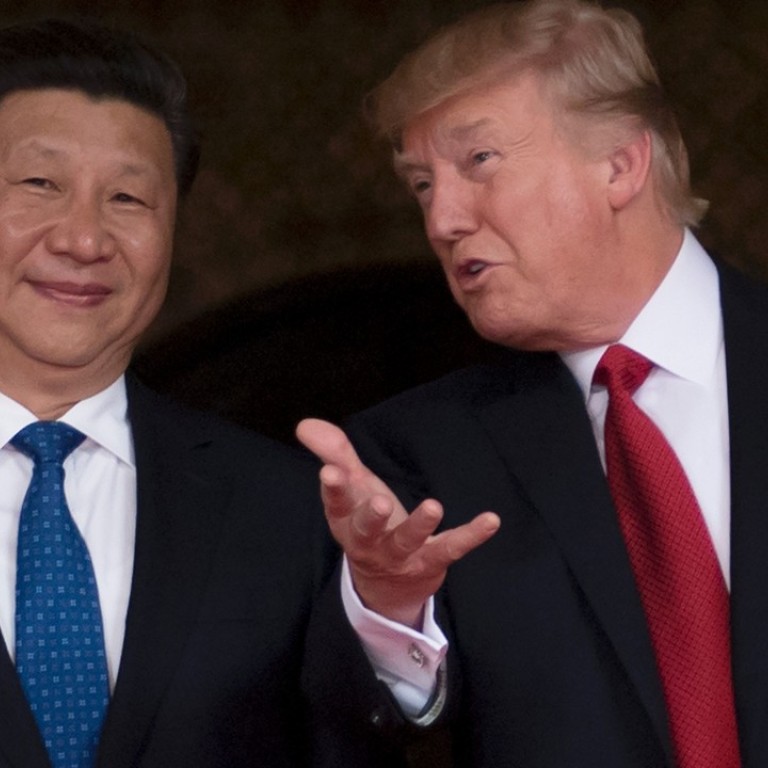
Donald Trump congratulates China’s Xi Jinping on ‘extraordinary elevation’
US president has ‘a much better rapport’ with China’s leadership than his predecessor did, US Commerce Secretary Wilbur Ross says
US President Donald Trump congratulated Chinese counterpart Xi Jinping on his “extraordinary elevation” after Xi solidified his grip on power at this month’s Communist Party congress.
“Spoke to President Xi of China to congratulate him on his extraordinary elevation. Also discussed NoKo [North Korea] & trade, two very important subjects!” Trump tweeted after a phone call with Xi on Wednesday.
In a later interview with the Fox Business news channel, Trump, who will meet Xi in Beijing in two weeks, described Xi as a “powerful man”.
“I happen to think he’s a very good person,” he said. “Some people might call him the king of China, but he’s called president. But we have a very good relationship, and that’s a positive thing, and it would be good to have that relationship with Russia and other countries too.”
US Commerce Secretary Wilbur Ross said Trump had spoken with Xi regularly in “cordial” phone conversations since the two first met at Trump’s Florida estate in April.
Ross told a New York event that Xi and Trump began to develop “a very good personal relationship” during their initial meeting at Trump’s Mar-a-Lago estate, “and that’s been fostered since then”.
“They speak on the phone quite often and they’re by and large relatively cordial conversations, so at the human level there’s a much better rapport than the prior administration had had with the Chinese leadership,” Ross said.
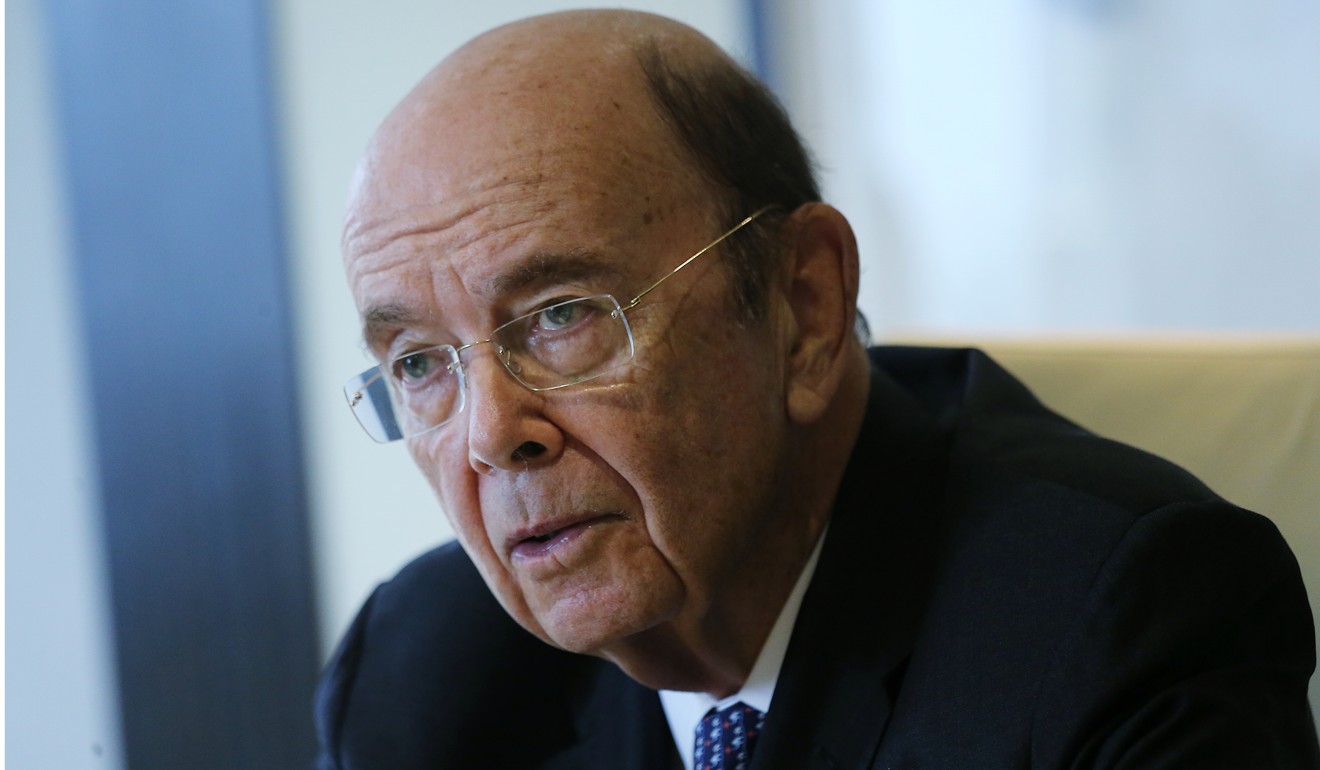
“What we don’t know is now that President Xi has been elevated to practically Mao-type status, will that make it easier to deal with him now that he’s consolidated power or will it make it more difficult?” Ross said at a lunch organised by the New York Economic Club. “We’ll tell you better after the November visit.”
Ross said he’s confident that Trump will be able to produce more “deliverables” along the lines of greater access to China’s market for US companies in certain industries when he meets Xi in Beijing next month.
However, addressing US complaints around intellectual property rights, the commerce secretary said that “forced localisation, and forced technology transfers … are very important issues that are going to take a little time to resolve.”
The close ties with Beijing, which Trump administration officials have publicised, underscore the US leader’s preference for negotiating with power brokers. China’s 19th party congress made Xi the most powerful Chinese leader in decades when his name was added to the party constitution – a move that put him on a level with late paramount leaders Mao Zedong and Deng Xiaoping.
The new leadership line-up excludes from the Politburo Standing Committee, China’s highest decision-making body, anyone who would still be young enough to take over from Xi in five years’ time.
The meeting, expected to take place during Trump’s visit to China on November 8-10, is part of a broader Asia trip likely to be dominated by concerns about North Korea’s ballistic and nuclear programmes.
Xinhua reported that Xi had expressed a desire to work with Trump to “jointly blueprint future development of China-US ties”.
While Trump works to strengthen his direct connection with Xi, his decision to skip a key multilateral meeting in Asia represented a further retreat from leadership in the region and more opportunity for China to fill the role, experts said.
Trump, who will begin a round of bilateral meetings with Xi, Japan’s Prime Minister Shinzo Abe and other Asian heads of state starting on November 5, will miss a multilateral meeting of most of the region’s leaders the day after the US president is expected to end his Asia tour. The East Asia Summit brings together leaders of the 10 Asean member states, Australia, China, India, Japan, New Zealand, South Korea, Russia and the US.
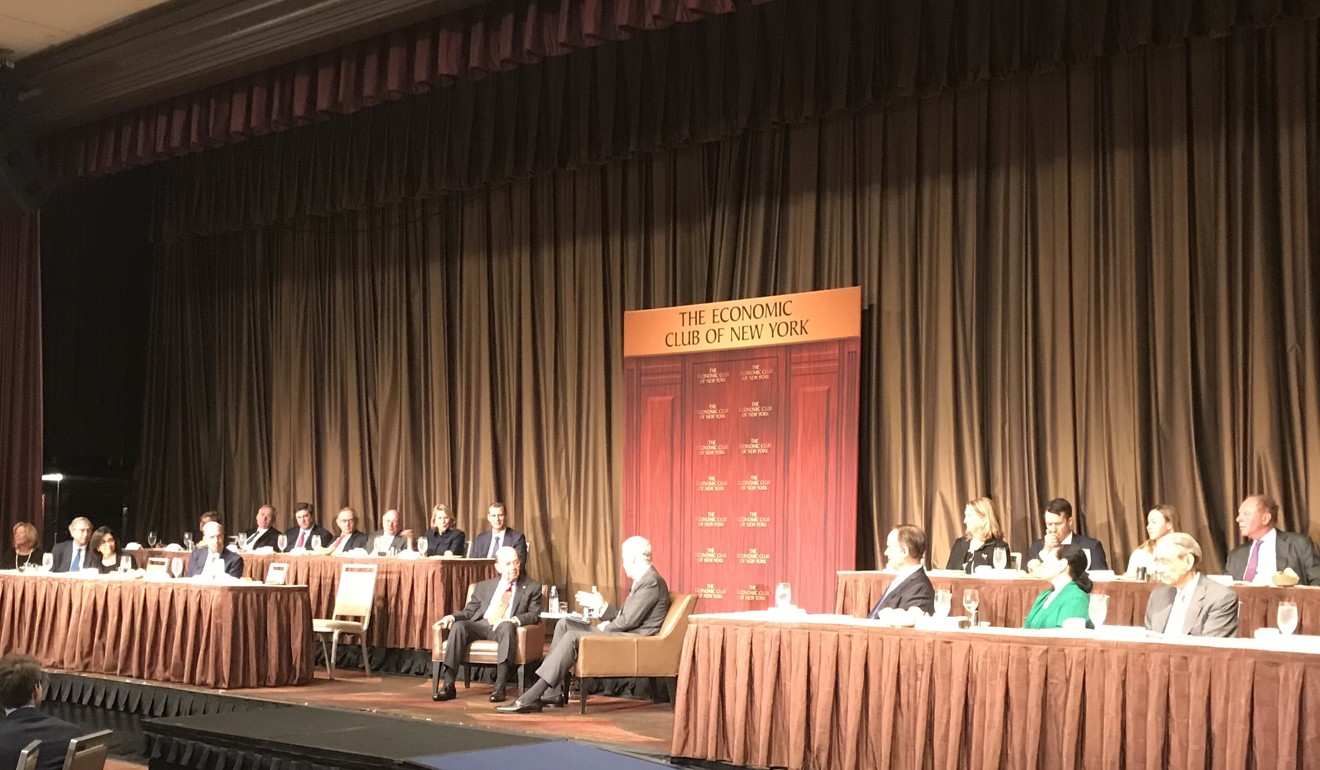
“President Trump’s absence from the East Asia Summit will confirm the belief that the United States is only interested in à la carte bilateralism rather than supporting regional responses to regional challenges,” Paul Stares, a senior fellow for conflict prevention and director of the Centre for Preventive Action at the New York-based Council on Foreign Relations, told the South China Morning Post.
“This not only squanders the hard work of previous administrations to demonstrate that the United States is committed to building regional security institutions but it also provides an opportunity for China to show that it is a more dependable partner for the long term,” said Stares, who recently published Preventive Engagement: How America Can Avoid War, Stay Strong and Keep the Peace. Stares’s book argues for engagement with regional organisations.
Trump’s first stop on his Asia trip will be Japan, where he will meet US and Japanese service members and hold bilateral talks with Prime Minister Shinzo Abe. The president also will meet families of Japanese citizens abducted by North Korea. Trump will arrive in Seoul on November 7 for talks with President Moon Jae-in and a speech at the National Assembly, where he will call on the international community to increase pressure on North Korea.
On November 8, Trump will arrive in Beijing for “a series of bilateral, commercial, and cultural events, including meetings” with Xi, according to the White House.
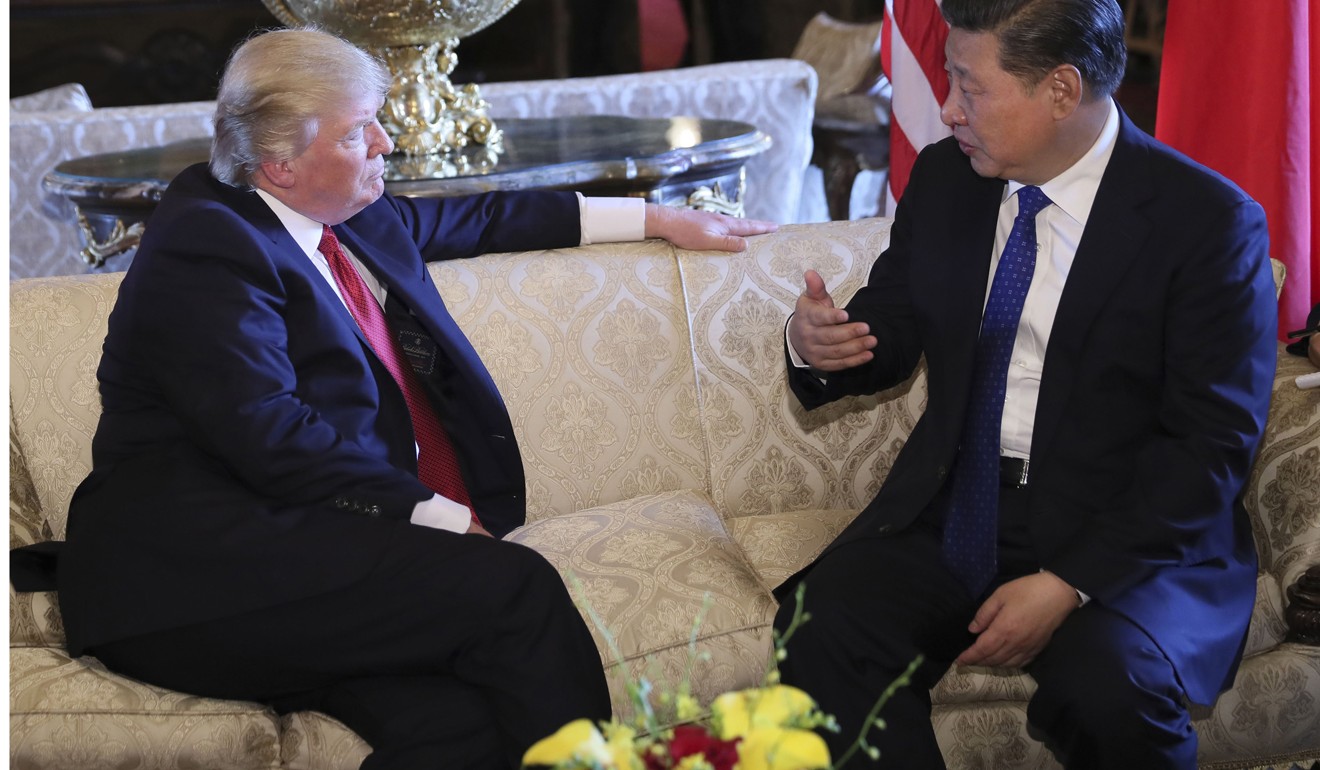
Trump will then arrive in Vietnam on November 10 to take part in the Asia-Pacific Economic Cooperation Economic Leaders’ Meeting and deliver a speech at the Apec CEO Summit in Danang, and then hold talks with President Tran Dai Quang in Hanoi.
Trump will arrive in Manila on November 12 for the final leg of his trip. He is expected to take part in a gala dinner celebrating the 50th anniversary of the Association of Southeast Asian Nations on that day and bilateral meetings with Philippine President Rodrigo Duterte the next day. Trump will not travel to the Philippine city of Angeles on November 14 for the East Asia Summit.
Trump’s absence from the summit, “coupled with Xi’s triumphant victory lap after the 19th party congress, will reinforce concerns that China’s rise and leadership is inevitable and the US has one foot out the door,” Lindsey Ford, director of policy-security affairs at the Asia Society Policy Institute, said in an interview with the Post.
“It will also send a message, especially to Southeast Asian partners, that the president has little interest in the broader security concerns of the region beyond the topic of North Korea,” Ford said.
US Secretary of State Rex Tillerson “can certainly sit in the seat and ably deliver the right messages, but it’s hard to deliver a forceful message about US leadership when the leader himself isn’t interested in showing up”.
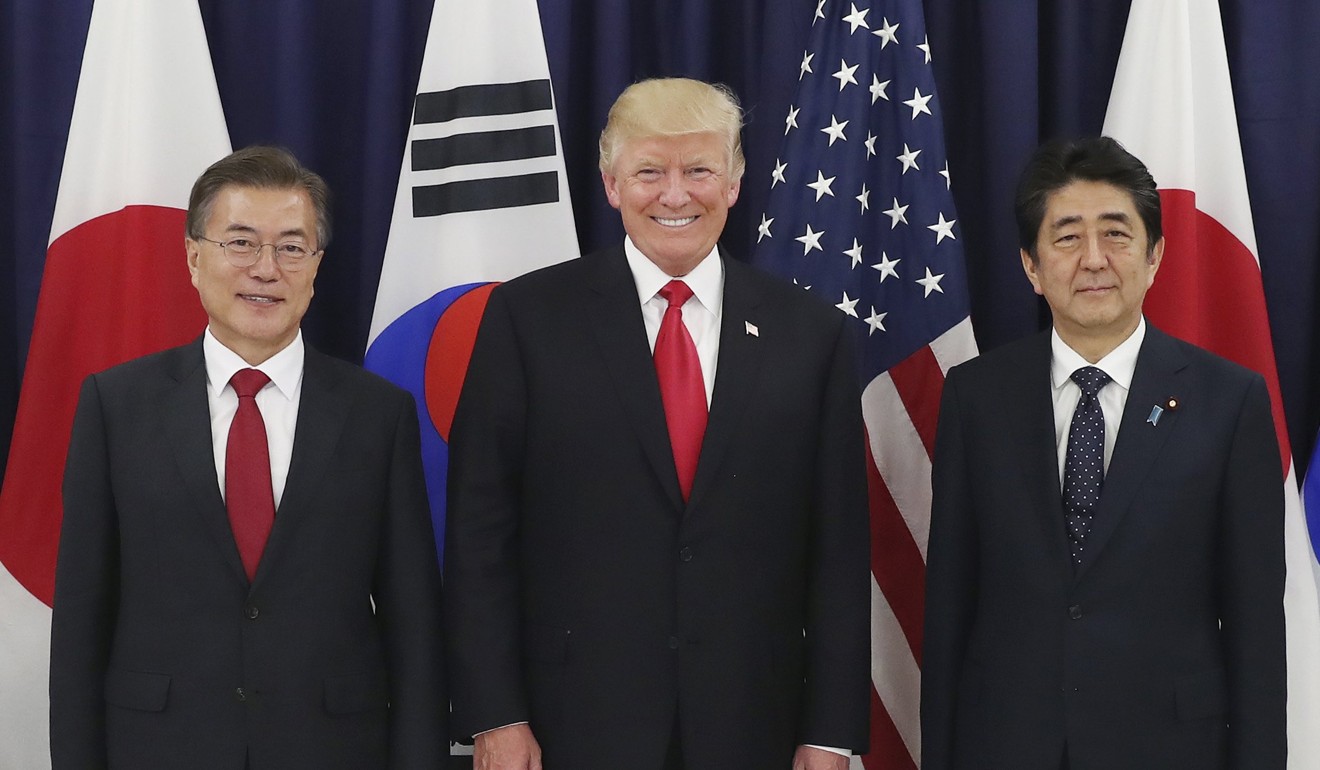
On China’s cooperation with the US on efforts to halt North Korea’s development of nuclear weapons, Ross expressed confidence.
“We do believe that China has been much more cooperative in terms of enforcing sanctions than they had been,” the commerce secretary said. “We’ve seen that in terms of the banking system. We’re seeing it in terms of supplying fuel oil to North Korea. We’re seeing it in terms of [China’s] limiting of coal exports to North Korea.”
The latest UN Security Council resolution against North Korea, brought forward by the UN’s US delegation, passed unanimously last month. The resolution’s sanctions target US$1.3 billion of export income by banning UN member countries from buying textiles from North Korea and banning contracts for labourers from the country working overseas.
The new sanctions also cap North Korea’s imports of petrol, diesel, heavy fuel oil and other refined fuel products at two million barrels annually, which would cut the amount from about 8.5 million barrels now.

